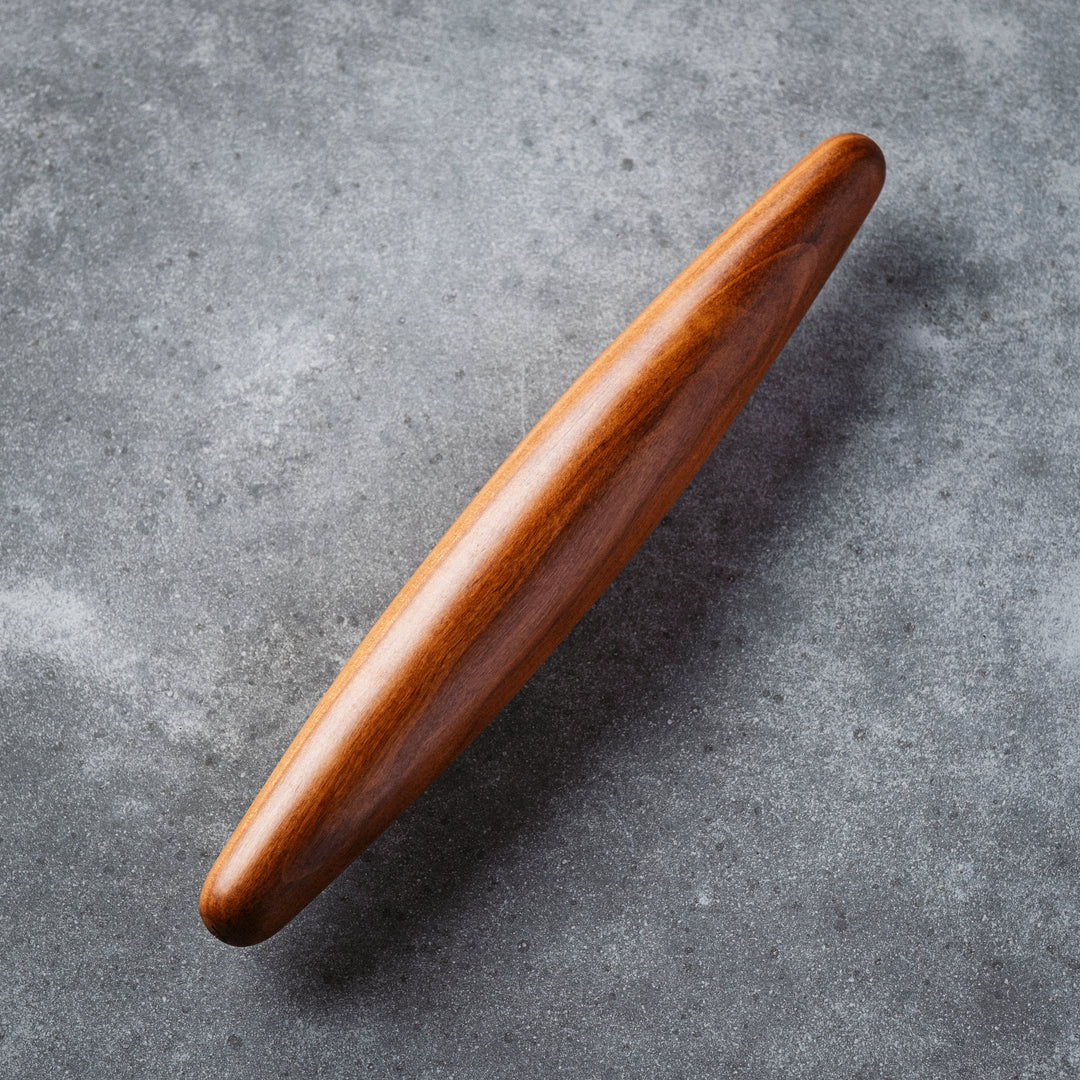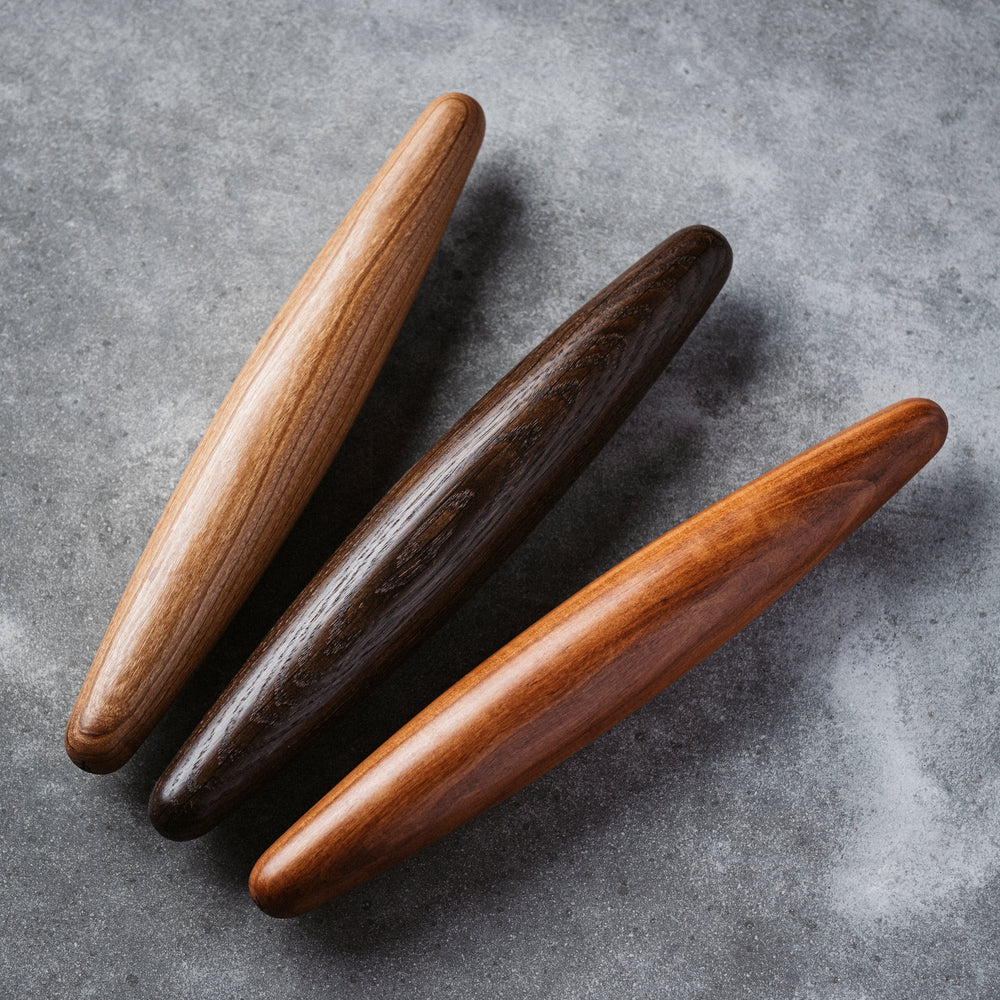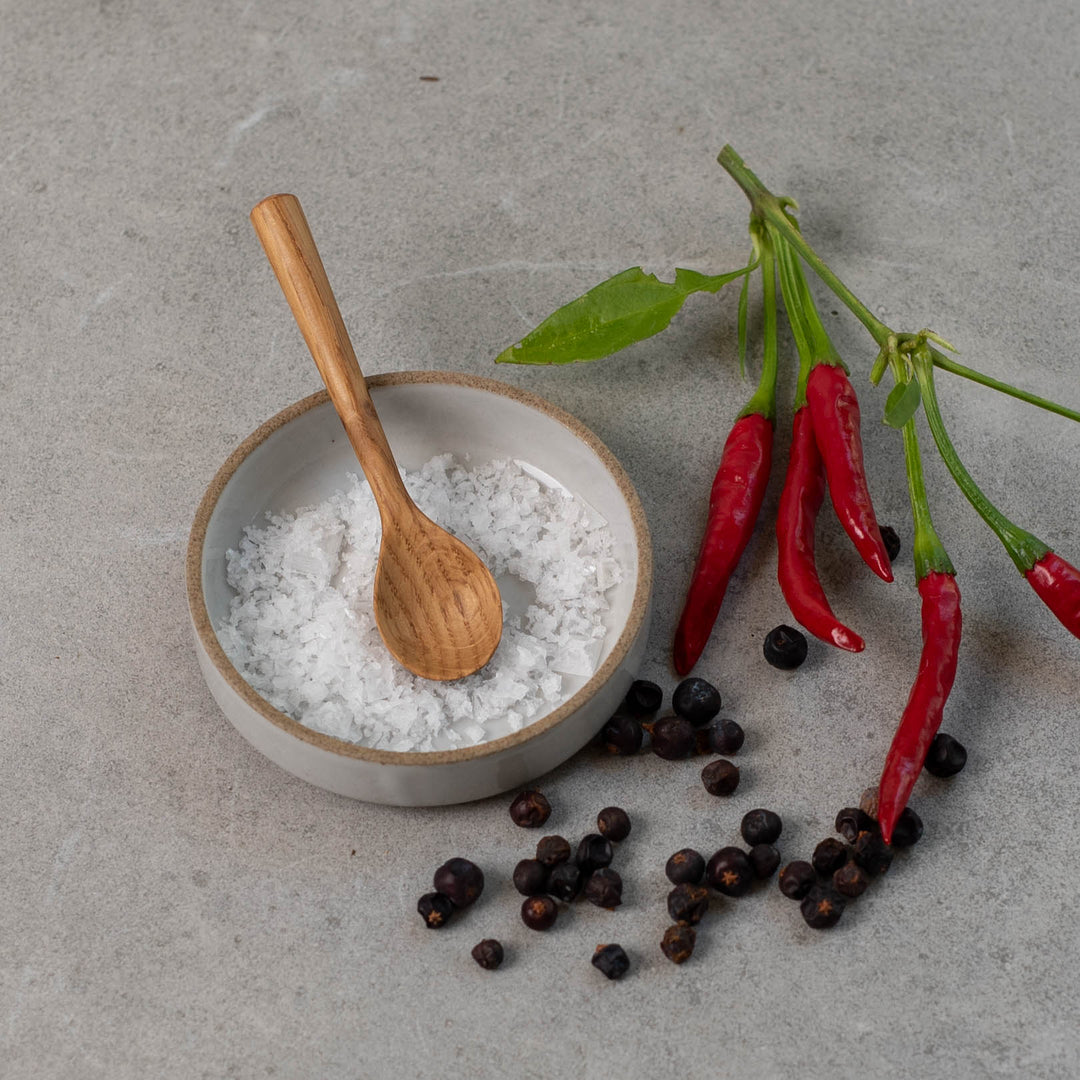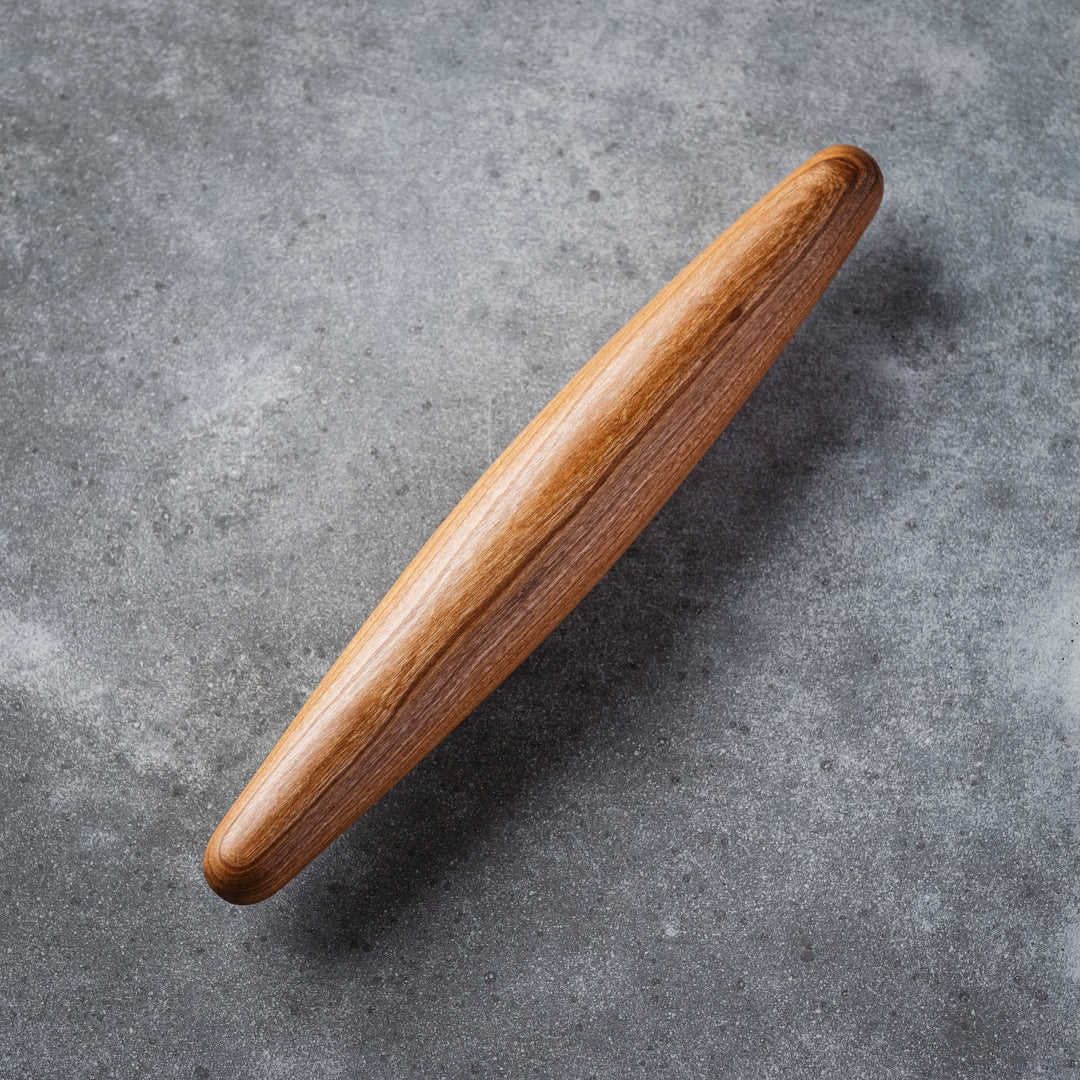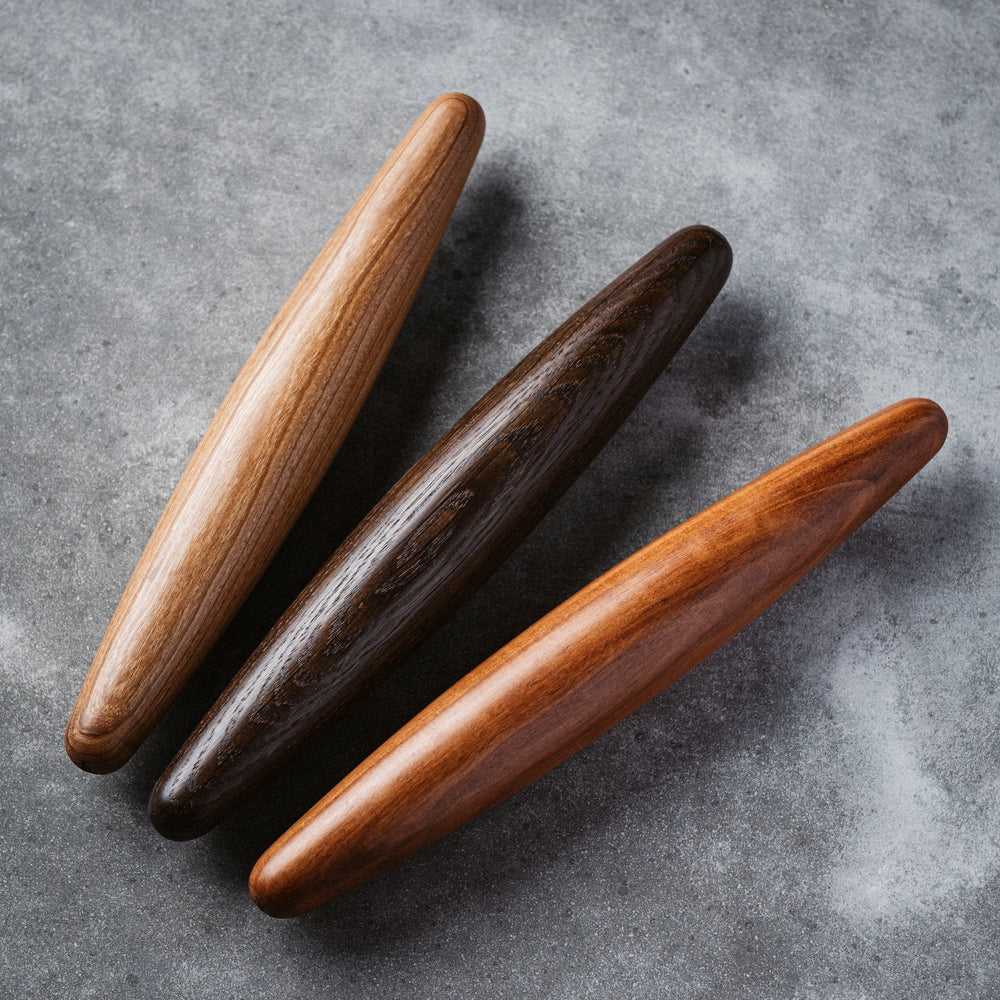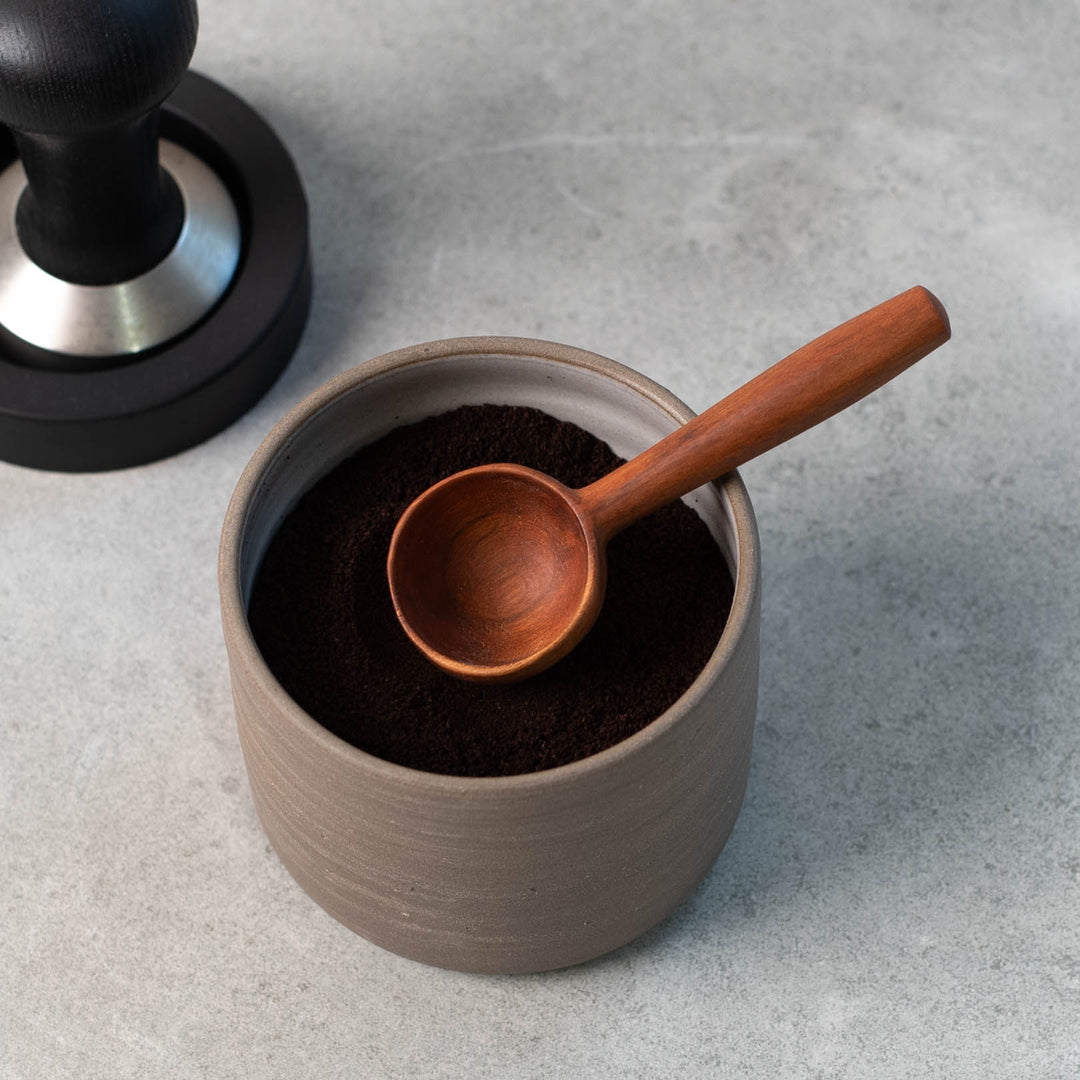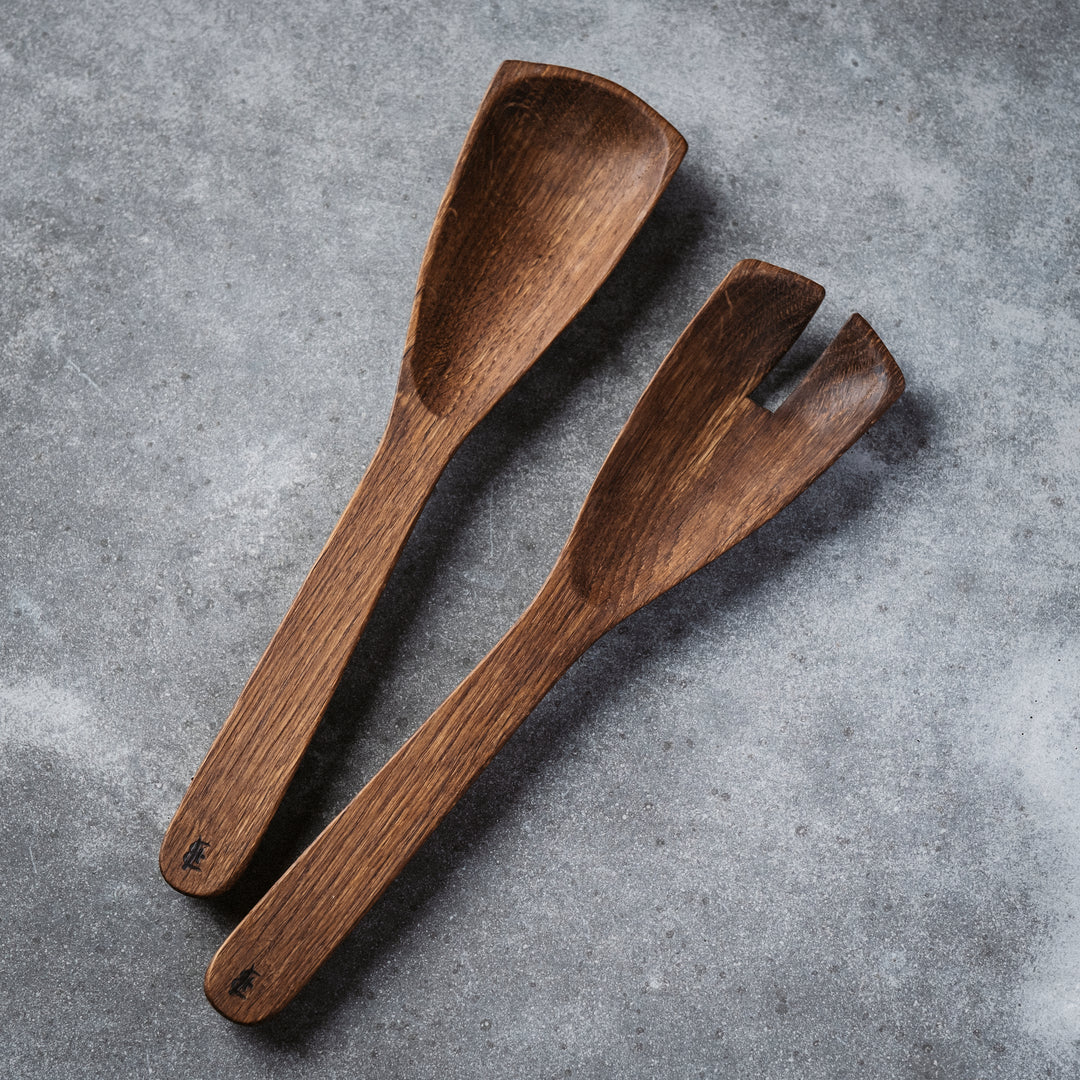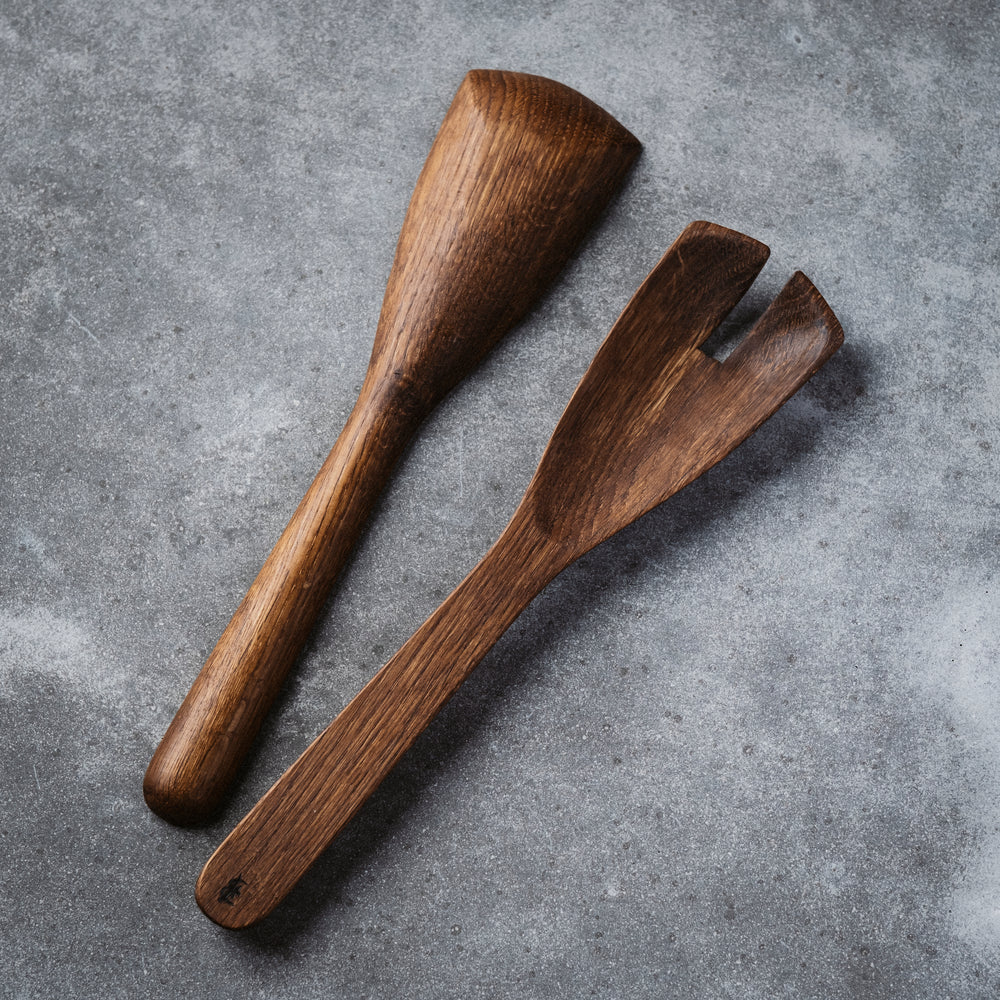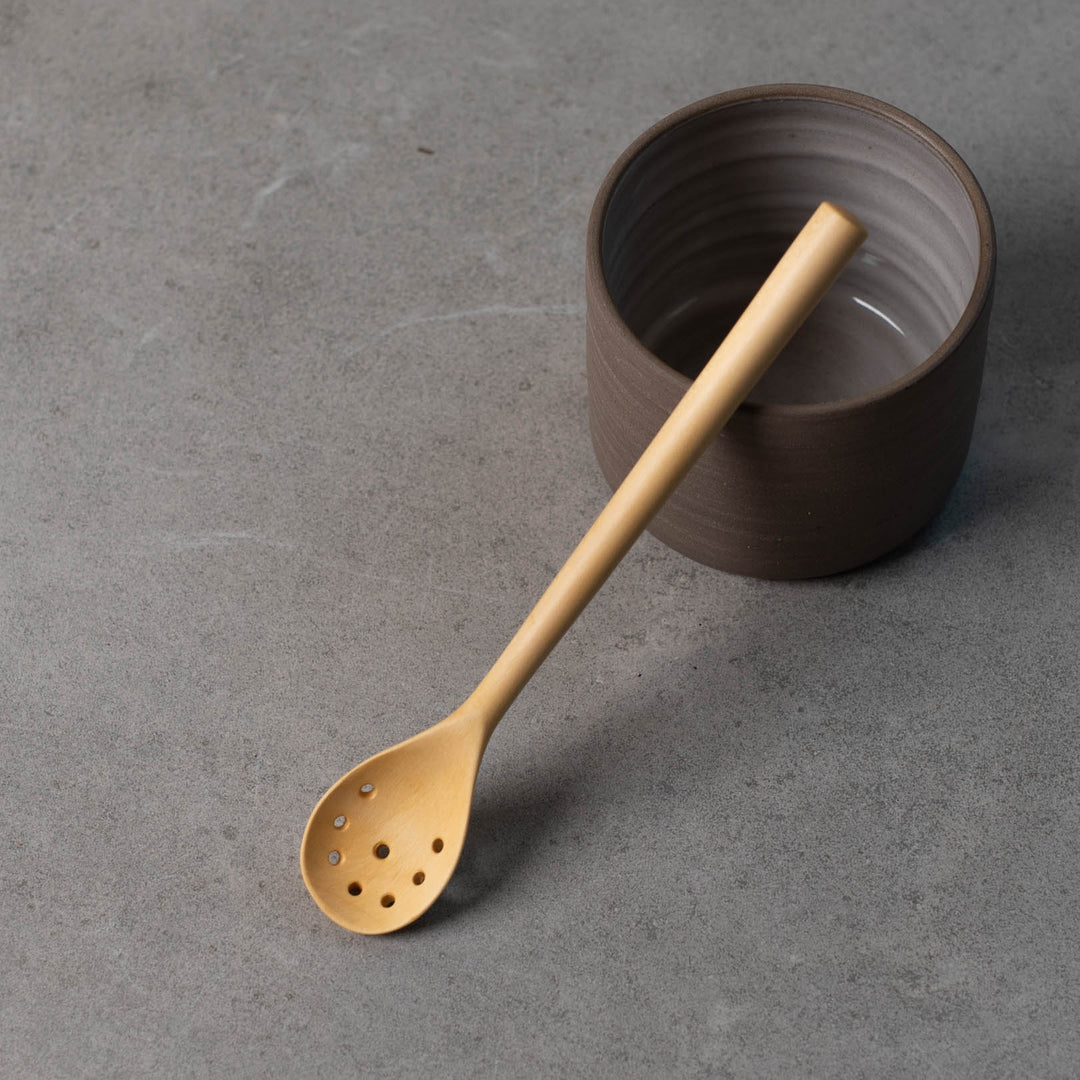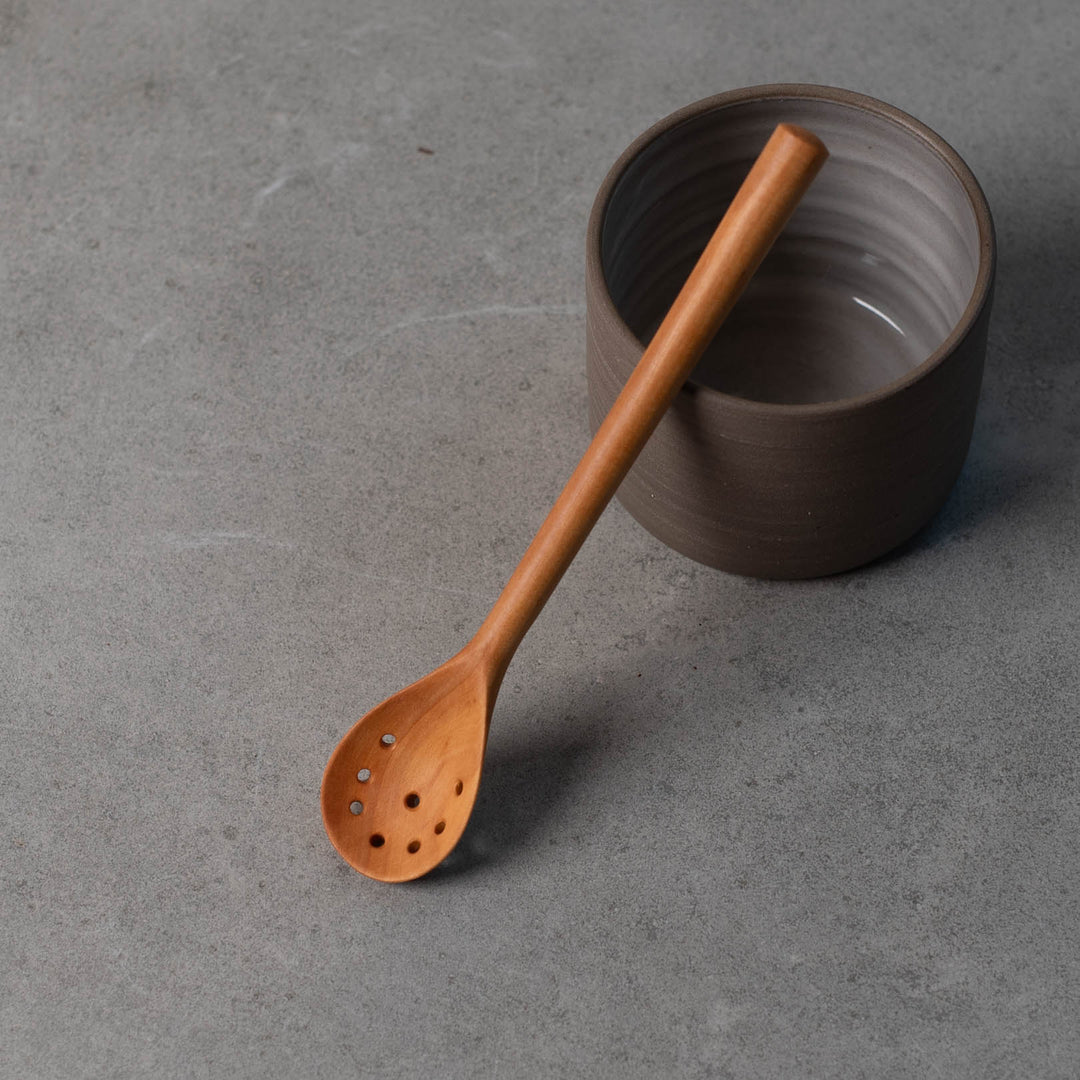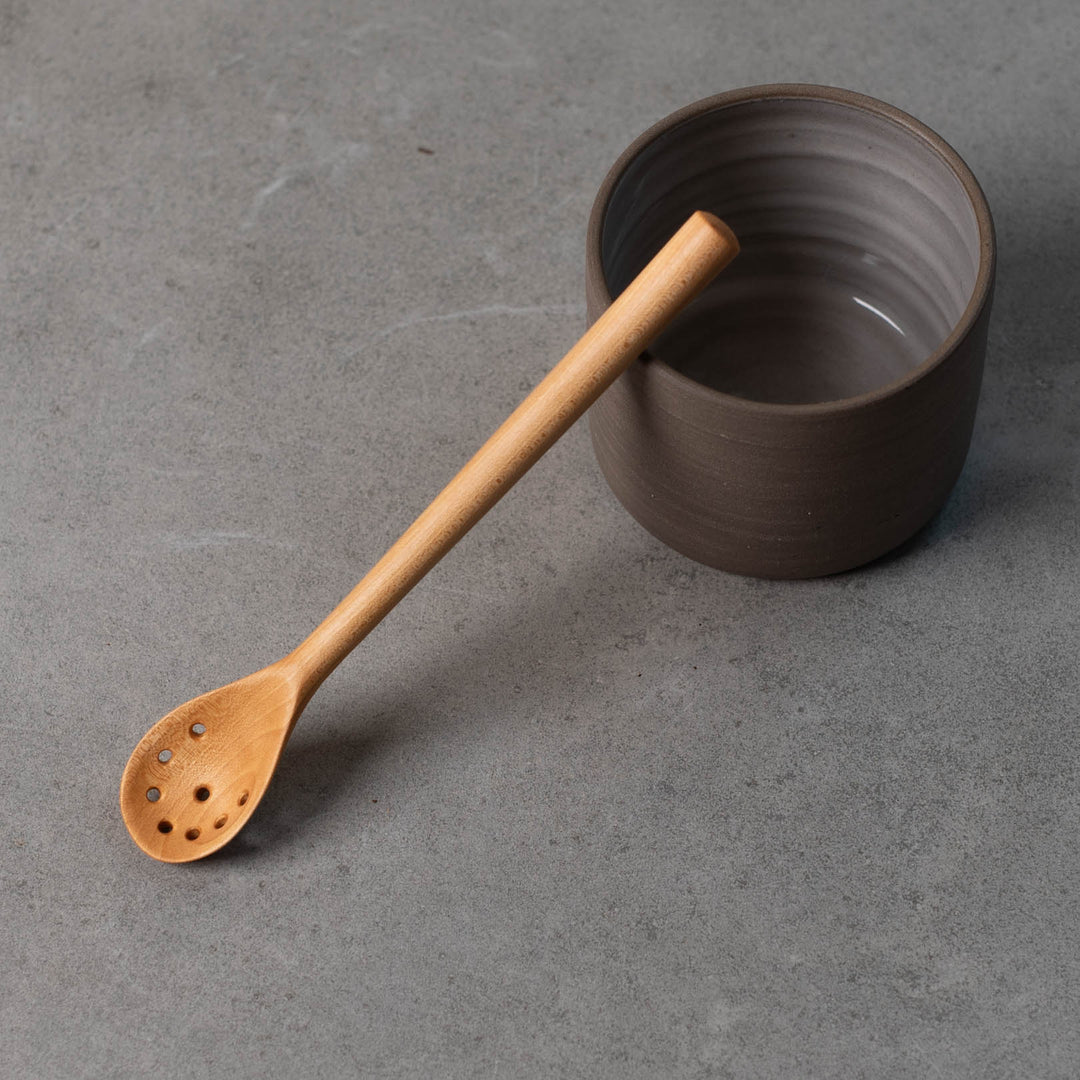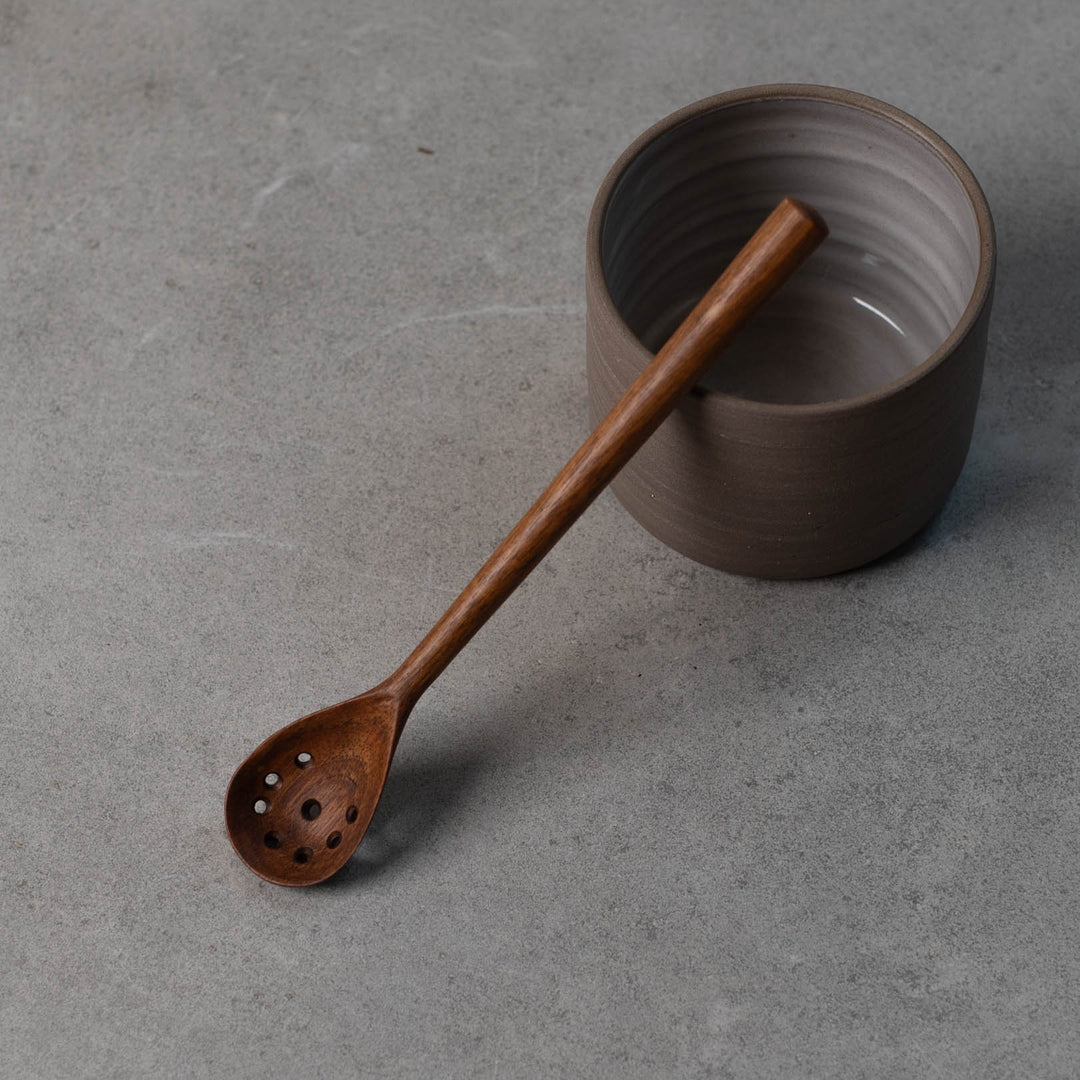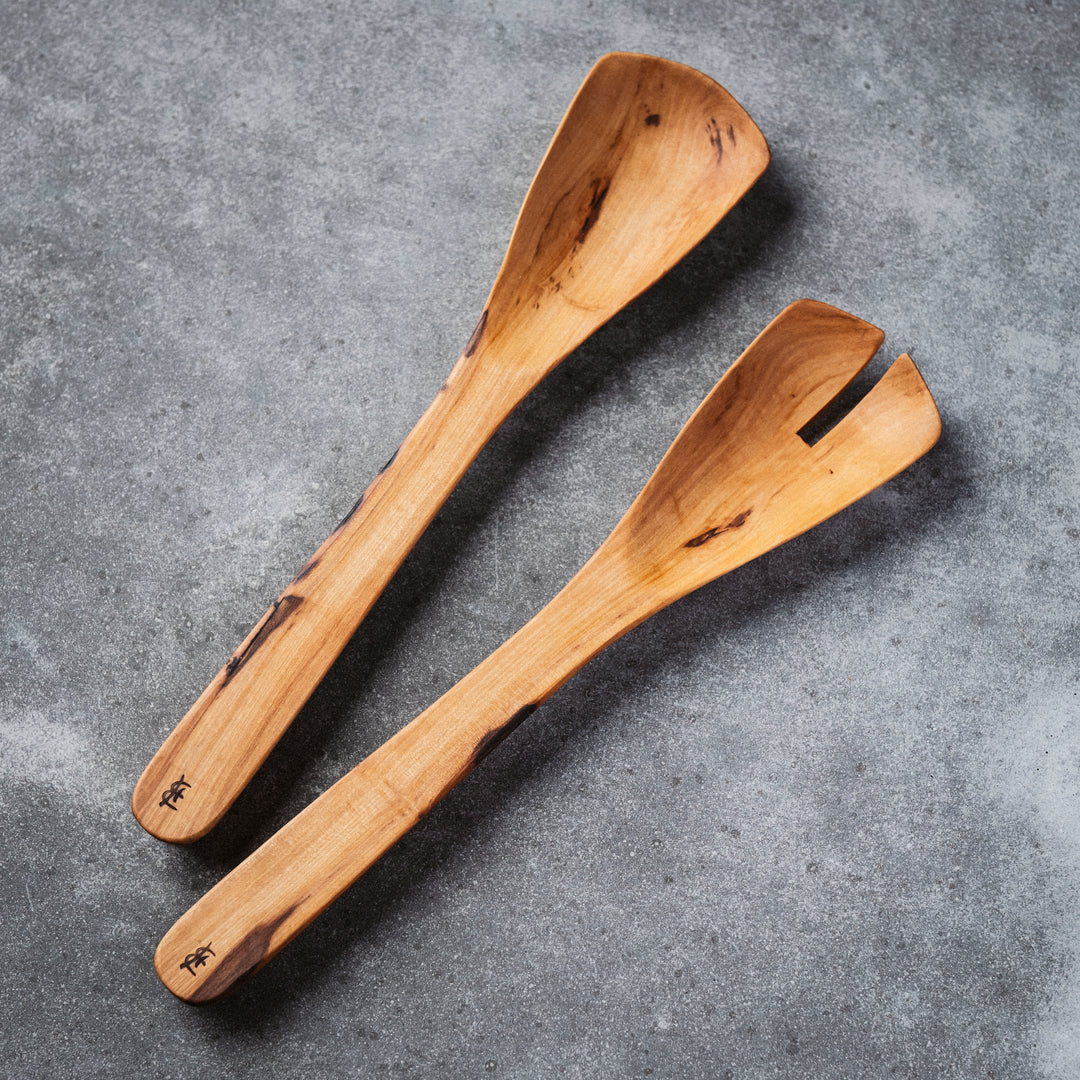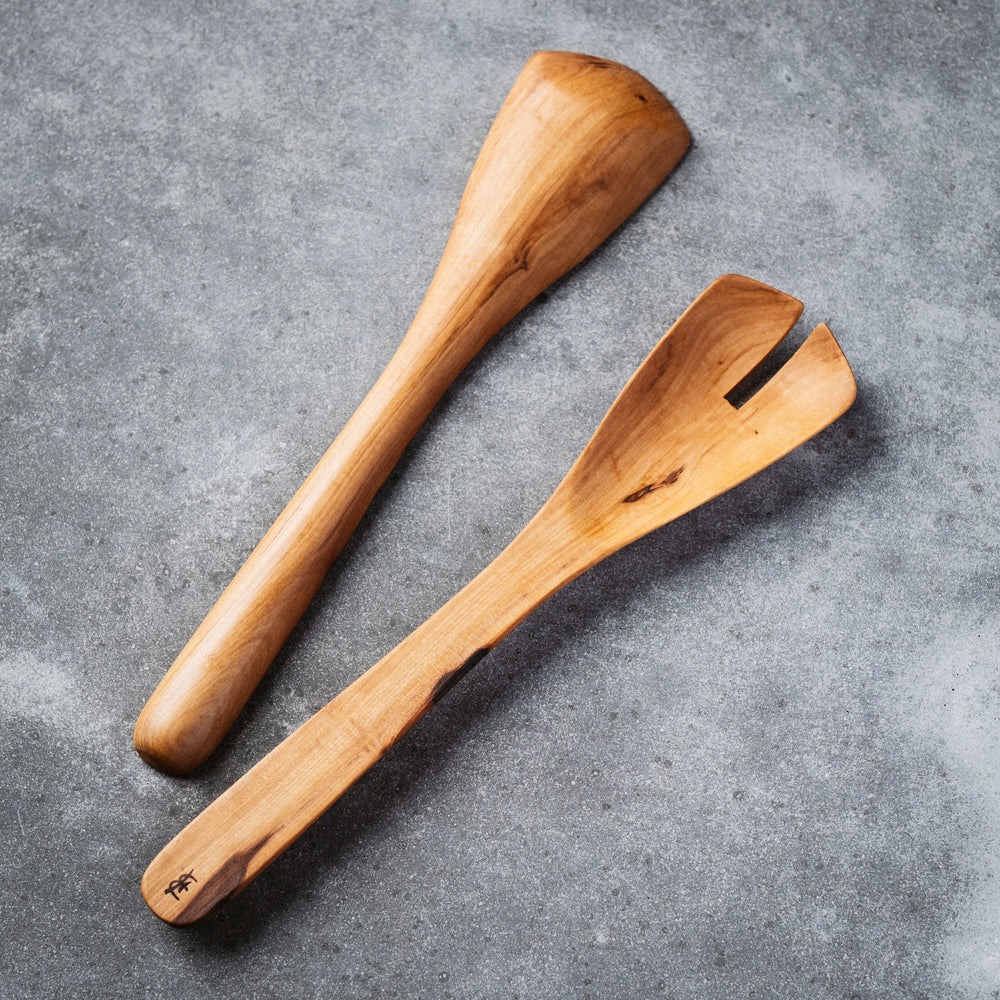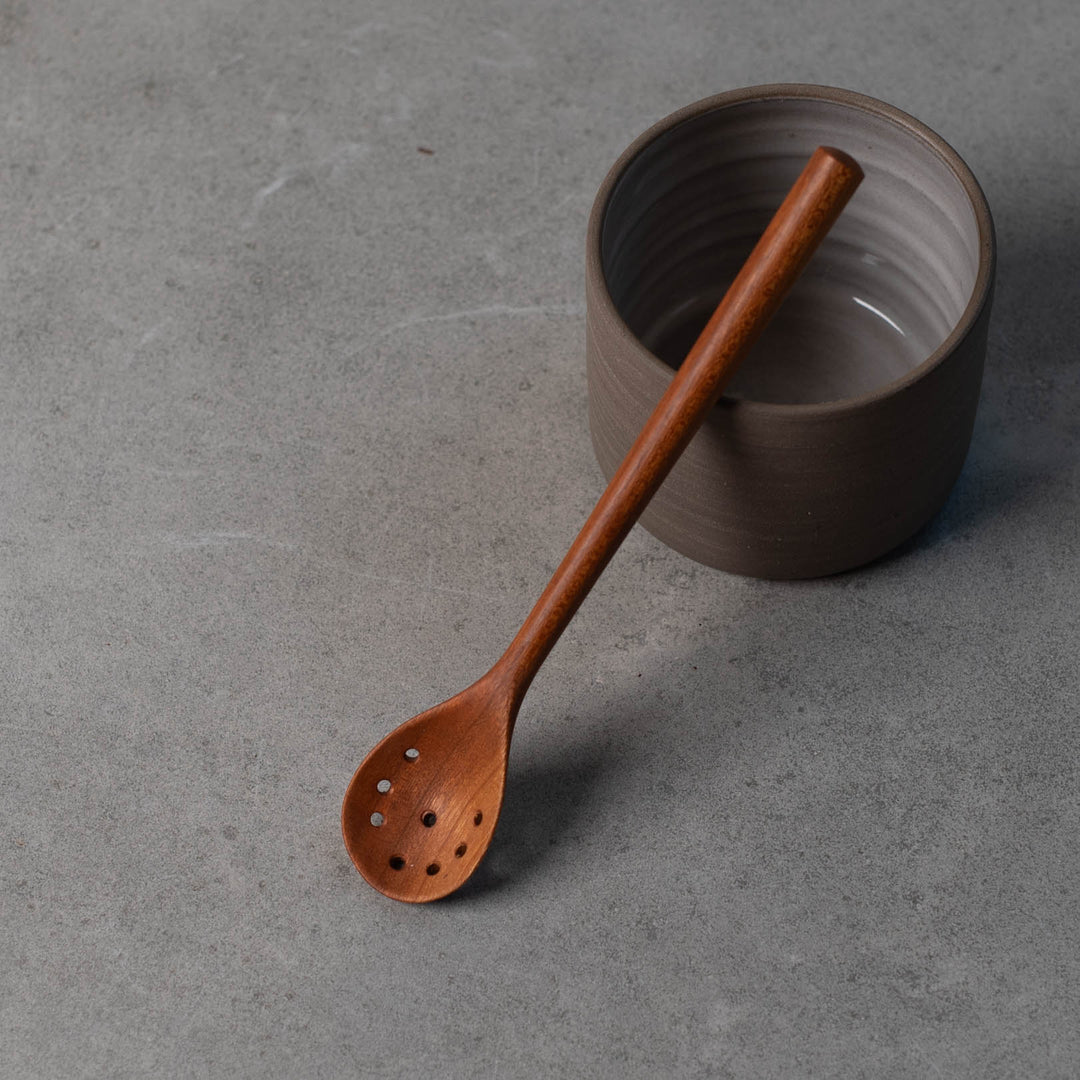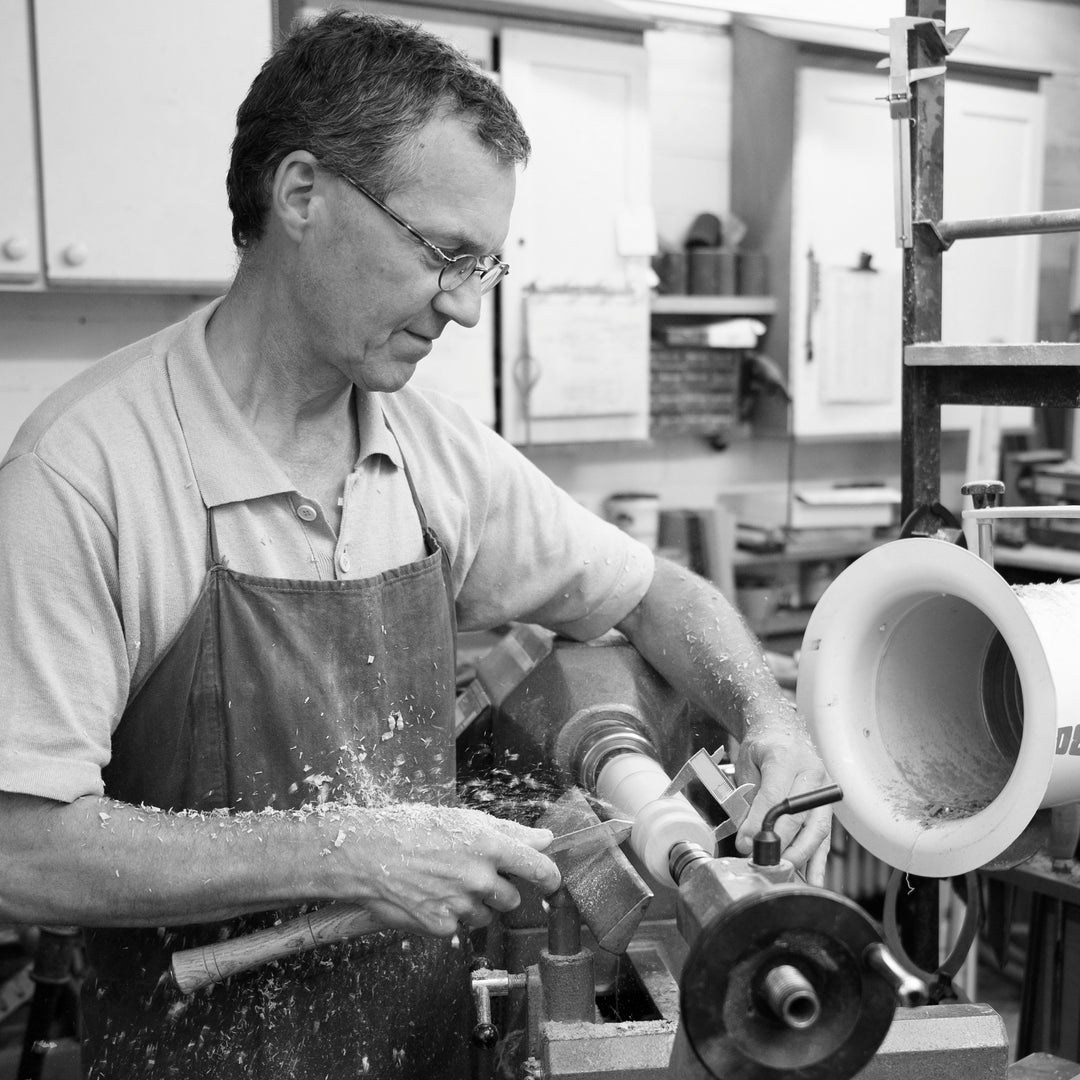Hergen Böttcher, salt/pepper mill, hand-turned | cherry wood
- Low stock - 1 item left
- Inventory on the way
About the object: Hergen Böttcher's hand-turned salt and pepper mill made from local woods is a useful decoration in your kitchen and on the table. As a salt or pepper mill, it is pleasant to hold and seasons your food to the desired degree of grinding. Its slightly conical shape makes the mill a real eye-catcher and its ceramic grinder makes it ideal for grinding salt and pepper. The model is available in three sizes: 16cm, 21cm and 26cm high wooden body. The models can be optimally combined with the different wood and size variants in the series. The specified sizes only apply to the wooden body,the metal knob (approx. 2 cm) on the top of the mill must be added to the total height.
Manufacture: The product is made from fruit and garden wood that comes almost exclusively from private gardens in the Bremen area, the surroundings of Hergen Böttcher's workshop. The wood dries for several years before the objects are worked out of the wood. Hergen Böttcher selects the wood individually for each object and turns and carves by hand in such a way that the special characteristics of the tree's life remain visible: Color changes between heartwood and sapwood as well as ingrown knots. Growths or natural discolorations can give the pieces unique structures. Deformations or cracks are signs of the drying process and are just as intentional as long as they do not impair the function of the object.
Operating instructions for pepper / salt mill: The ceramic grinder can be used to grind both pepper and salt.
- To fill the mill, unscrew the metal knob completely and lift off the upper part of the mill. Then fill the mill with salt or pepper and close it again.
- Pepper or salt may only be filled maximum to below the spring so that it is not compressed and can slide loosely into the grinder. Salt or pepper should still rattle when the grinder is shaken after closing.
- The upper metal knob can be used to continuously adjust the grinding degree. Therefore, do not close the grinder tightly at the top knob, but always set it slightly open for finely ground pepper and slightly more open for coarser pepper. So: large joint = coarse pepper, small joint = fine pepper.
- Only use the grinder at least slightly open and filled with salt or pepper, as otherwise the teeth of the grinder can get caught in each other.
- Do not store the (salt) grinder in a damp environment, as the salt absorbs more moisture from the air, which can lead to corrosion of metal parts.
- Unfortunately, larger grains, such as allspice (also known as clove pepper), do not fit in this mill. Fresh grains or even red pepper cannot be "broken" in a mill, they are too soft and would immediately clog any grinder!












